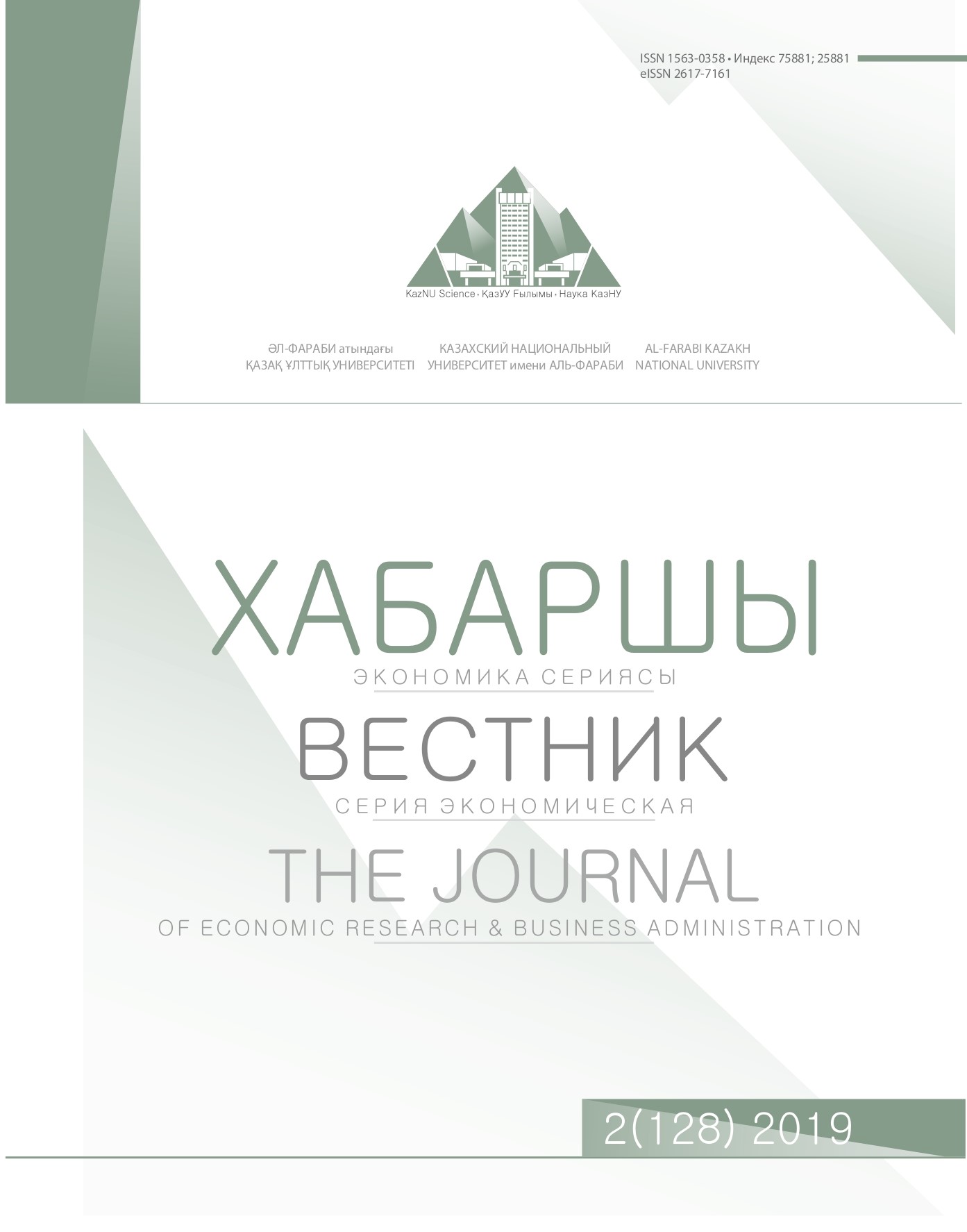Trade relations of Kazakhstan with the countries of Central Asia: dynamics and development prospects
DOI:
https://doi.org/10.26577/be.2019.v128.i2.019Abstract
The article discusses the current state and the main problems of foreign trade relations of Kazakhstan with the countries of Central Asia. The purpose of the study is to determine the significance for the Republic of Kazakhstan of trade with neighboring countries in the region, the barriers to mutual trade and its growth opportunities that exist today. The most important factor influencing the trade relations of
Kazakhstan with the countries neighboring the region is the orientation of their foreign trade and, above
all, of Kazakhstan itself to trade with countries outside the region. This situation has developed due to
the high availability of virtually all Central Asian countries with natural resources, primarily mineral resources.
The methodology of the study is based on classical and modern theories of international trade,
the theory of “new regionalism”, which allows to determine the causes, benefits, types of international
trade and barriers to its path. These theories make it possible to identify the economic and historical
background and growth opportunities of Kazakhstan’s trade with the countries of Central Asia. The main
results of the study include the definition of the dynamics (over the last ten years) and the commodity
structure of trade of Kazakhstan with the countries neighboring the Central Asian region. The article
presents indicators that make it possible to identify the significance of the republic’s foreign trade relations
with all countries of this region as a whole and separately with each of the countries: Uzbekistan,
Kyrgyzstan, Tajikistan and Turkmenistan. The practical significance of the study lies in the analysis and
assessment of the current state of Kazakhstan’s trade with the countries of its region, justifying the need
and opportunities for its growth in the future. In order to ensure further development of Kazakhstan’s
trade relations with Central Asian countries, it is proposed to eliminate customs barriers, corruption
related to them, reduce transport costs by modernizing the transport system and, in general, develop
economic cooperation based not only on government agreements, but also on agreements between nongovernmental
organizations and enterprises.













